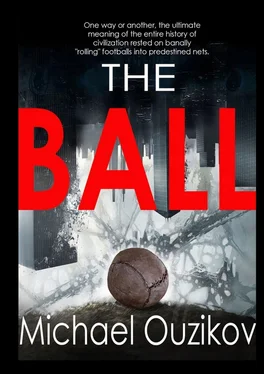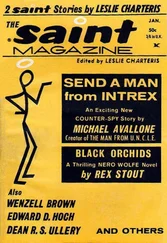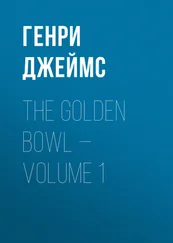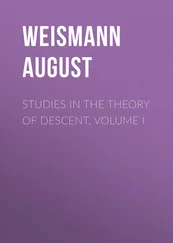Recoiling and dropping the glass that shattered on the stone slabs, Rodion opened his eyes and saw how lumps of succulent masses were flying across the little room – yellow corn peas. This mess also crawled down from his forehead and hair. Before he knew it, the old man turned Teichrib over his shoulders, kicked open the door, and pushed him out almost right under the wheels of a bus, which barely had time to decelerate. A piece of corn cob flew after Rodion Karlovich. Surprisingly, this spectacle was not followed by any swearing or long explanations in rich Italian gestures and hoarse cries like « idiotto! » The bus driver opened the door to the empty bus. Giuseppe «Blue Nose» went out after Rodion Karlovich and placed a black object into the professor’s hands. With an apologetic tone to his voice, he said, « Ton guha , Rodion! Grazie. » He turned the professor around by his shoulders once again and gently pushed him into the bus.
Rodion Karlovich flopped on the first seat and sat there for about five minutes, looking blankly out the window. Then, he thoughtfully ran his hand through his hair, still wet from corncob, and felt a light, bruised pain over his left eyebrow. A small streak of blood remained on these fingers. So that’s how what a corn fight for freedom and independence feels like, he chuckled to himself. A black, rubber ball was on his knees, pushing hard on the hip. Rodion Karlovich put his bloodied hand on the object and the pain that was festering him for several hours vanished in an instant. Just like that. The professor spread out on the plastic seat with a satisfied smile.
The driver’s shout brought Rodion Karlovich back from the void. The bus was at the same bus stop on Piazza Lima, and even on the same side of Via Plinio. When Rodion stepped out past the driver, he stopped him. Politely but firmly, the driver tapped on a scratched metal box with a cracked glass window.
« Dieci lire, signore, per favore, » he rasped.
« Si, signore, » responded Teichrib in the same tone and threw in a well-worn coin of ten lire, with ears on one side and a plow on the other side. A minute later, he again sat on the bench at the bus stop, as if asleep for a few minutes. Instead of a headache on his hands, he now had a warm, black rubber ball.
55° 46» 12» N
36° 39» 10» E
Odintsovo District, Moscow Region, Russian Federation
September 8, 1994
He woke up from the voices behind the door, finding himself lying on a hard mattress in a small, unfurnished room in the attic under the roof of a house. The mattress was not laid out, but at the head of the bed he found carefully laid sheets, blankets, pillows, pillowcases, a pair of clean but ragged jeans, a Dynamo Moscow t-shirt (how did they know it was his favorite team?), towels, and soap. He immediately sensed the smell of his own clothes and became ashamed of himself.
Outside the window, the gold crowns of birch trees sounded lovely as they rustled in the wind. A nearby radio blared a song about a «cherry-colored nine.» 8 8 Nickname for the VAZ-2109, a popular Russian-made hatchback car.
Oleg looked out from the barred window and saw an old Uzbek raking leaves. A transistor radio hung on a clothesline around his neck. The Uzbek was collecting the falling leaves with the rhythm of the song. The door, to Oleg’s surprise, was not locked, so he stepped out of the room. He found a pair of old friends sitting in battered armchairs, smoking, and playing a game of nard.
«Hey, brother Oleshka is up!» sarcastically hissed one of the men, «And boy do you stink! Move your feet and go take a shower… you’ll find a razor and a toothbrush there. You didn’t forget how to brush your teeth, did you?» Both men erupted into loud laughter. Sometime later, Oleg came out of the shower refreshed.
«Oh! Who are you? Look at him! It’s Wise Oleg the Second!» His «rescuers» had no limits to expressing their surprise. «And you said, „why do we need this piece of shit?“»
«The boss will be happy this time!»
Oleg was indeed unrecognizable. The formerly homeless man spent a good hour under the hard stream of water and wasted almost the entire bar of soap. He used up two disposable razors on his face and head so that not a single hair remained. Oleg was a creative person, «an artist in life» as he called himself. And it didn’t matter what he was doing. Under the running water in the shower, he imagined himself as a young Grigory Kotovsky, a Red Army commander. His reasoning on creativity was that the art of an «artist in life» – whether a singer, sculptor, composer, poet, it doesn’t matter who – cannot and should not be considered in isolation from their fate – or, calling fate by its real name, death. Take Pushkin. His poetry wouldn’t have been any worse had he not been killed in a duel, but it’d be unlikely that he would have been remember by anyone to this day, just as few people remember the verses of Zhukovsky, Kukolnik or Baratynsky.
The consumer of art loves to «look to the last page» and find out that the author justly hanged or shot themselves. Or at least, they pranced around naked in a prison cell or an asylum. That means, all that an artist wrote, made, painted, or sang was the clear truth. People are pleased to know that Gogol had gone mad, that Tolstoy died in some obscure little railway station, that Venedikt Erofeev fairly died of throat cancer, and Oleg Grigoriev of cirrhosis of the liver. The genuine actor is obligated to die onstage. The singer must belt out the final note and collapse. Lennon or Cobain had to die young because that was the proper, real way to go. That’s how it’s supposed to be for the famous and truly talented. Unlike those well-known people, Oleg Pervushin himself knew how to make an exit in his own way. He was sure that he could «hop away like a bunny» from any vicious circle. Unnoticed. Disappearing like a shadow at noon.
He was born in Kazakhstan in 1960, in the city formerly known as Tselinograd. He was an excellent student. Then he served in the army for two years the Arctic Division as a flight technician at a military airfield. After the army Oleg entered the Sverdlovsk Institute of Architecture. Many scoffed at him, « did they accept you without an exam, as a collective farmer from the country?» However, he didn’t finish the institute. Instead, he rode the rails across the whole country as a train steward and began to write short stories and diaries of his travels. Once these records fell into the hands of an up-and-coming publisher. The stories were published in the early nineties. Readers liked them, wanting more and more… Life, it seemed, started to move in the right direction. But then he vanished, quietly, like an Englishman.
He left to the village Gostilovo in the Ryazan region, where he fathered a son from his wife, Katya, and where they all lived together, along with a dog named Bad and a cat named Marquis. Oleg would spend the evenings on the porch in satin shorts down to his knees, smoking a cigarette and staring at the sky. His wife eventually got tired of this life and left for Moscow, taking their son with her. She said to Oleg before leaving, «Other freaks can at least energetically promote themselves. Today’s «modern artists’ convert their idiocy into hard currency… thousands of dollars! And what about you? Your books have a laughable circulation, your paintings are not exhibited anywhere, and the peak of your fame was an appearance on the local news about government officials supporting culture in the villages. What culture? Goddamn you!» In conclusion, Oleg Anatolievich Pervushin could quite truthfully say, as in the words of one old Ukrainian man, «the world tried to catch me, but could not.»
Читать дальше












